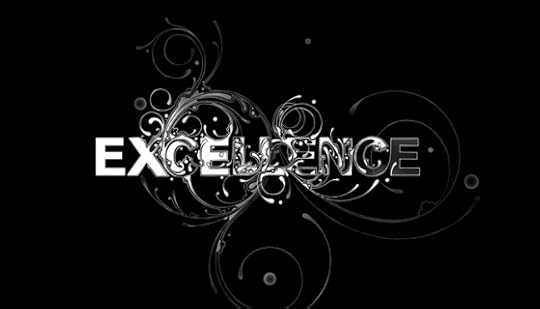Seth Michael Stone's Blog
February 11, 2016
So You Just Gave Performance Reviews…
December 22, 2015
Finding Great People
November 12, 2015
Entrepreneurship: Visionaries and Missionaries Unite
November 4, 2015
Failing on the Biggest Stage and Life After…
October 30, 2015
Innovation in Baseball Speak
September 29, 2015
5 Keys to Successful Human Resource Development
In an age where people are starting to matter to organizations again, Human Resource Development (HRD) has become a fairly popular subject. Yet, despite the attention it’s garnering and the handful of shining examples we can point to who practice it well, most organizations are either ignoring it or don’t know how to do it effectively.
From my experience, I believe the reason is because, HRD is something that we love in theory, but hate in practice. We romanticize about it, because; we know morally it’s the right thing to do. Also, research tells us that today’s top talent (and even not so top talent) is seeking more from their jobs than just a paycheck and some cut-rate health insurance policy. If you’re not willing to go that extra mile, your people will leave and find someone else who will.
So if HRD makes good business sense, why do we hate it in practice? Because, at best it feels like a nightmare to quantify and at worst it can be nearly impossible to justify to key stakeholders. The first question is usually, where’s the ROI? If you don’t have a plan to answer that you could find yourself looking for a new job. That alone is enough to scare most people away from HRD.
This leaves good managers and executives in an exhaustive juggling act of trying to keep those beneath them happy and growing, while remaining financially competent in the eyes of those they are accountable to. A juxtaposition that no one will ever envy, I promise!
How do we fix it? Here are five simple steps to get you pointed in the right direction:
Get back to the basics – We’ve over-complicated the issue. Development comes through learning. This can happen in a multitude of ways and cost effectively at that. Of course there are nuances, because it’s HR, but by and large when we’re talking about HRD we’re talking about learning. So let’s not make it bigger than it has to be.
Know the difference between training and development – Contrary to popular opinion, these two words are not synonyms. While there are many differences, the biggest in my mind is that training is about building a skill set and development is about building the whole person. The former has its rightful place, but the latter will pay bigger dividends in the end.
Let people explore their passion – To do so might sound pointless to some and to do so while on the clock would be heresy. After all, we want productivity not passion, right? Well, Google allows room for this type of exploration and by all accounts they’re a pretty productive outfit. When you let people exhibit what they’re truly passionate about, sometimes it will align with your business goals and sometimes it won’t. When it does, it will transfer to the bottom line. When it doesn’t, it might be time to let those people move on. You’re better off in the end either way.
Allow room for creativity – Your organization likely has problems, probably some big ones. Your people were all born with an imagination (even though we’ve tried to teach it out of them). Let them use it for a change and give them the freedom to actually express their thoughts without the fear of rejection. You might be amazed at the solutions they come up with.
Have meaningful conversations – Some of the most important development I experienced early in my career was when a supervisor or manager asked me to coffee or lunch. Those times away from the chaos of the office allowed me to attentively listen while they shared their personal wisdom and experience with me. I still carry snippets of those conversations with me to this day. Don’t underestimate their importance.
These steps are important because, they lead to learning. When people learn they grow. When people grow they become more confident. When people become more confident they perform better. When people perform better more work gets done. When more work gets done your organization is more successful. It really can be a beautiful thing if you just give it a chance.
August 7, 2015
Re-Thinking How We Attend Conferences
Today I attended the first day of the Global Leadership Summit. It’s a great event that I would recommend to anyone. But the truth is I wasn’t that excited to go. Not because, I don’t have plenty to learn about leadership, I do. Rather, because I know what happens for most people at conferences including myself. We go and get all fired up. We leave with our chin up, our chest out, ready to take on the world. Then within two or three weeks, we’re hard pressed to remember even one or two takeaways from an event we initially thought to be life changing.
I mentioned this to a colleague of mine today and he told me this is what’s known as conference cynicism. I agree, but rather than be a cynic, I decided it’s time to find a solution to the problem.
So what’s the problem? In my estimation, it’s that most conferences consist of information overload. It’s the curse of being fed too much good information in a short period of time. How is that a curse? Unless you have the mental capacity of Einstein or Mozart, what most of us get at good conferences is just far too much for our brains to process on the aggregate in such a short time. Yet, we try and be a sponge and absorb everything. But then we hit the light of day (our organizational realities) and our sponge quickly shrivels up and dries out. Leaving us with no value captured or applied.
In essence, our minds shut down and say “no more, this is too much!” Then we lose it all and conferences can quickly become an act of futility. So how do we extract applicable value? I think there are two easy steps:
Re-acquaint yourself with your core values. Why? You know what they are, right? Well, they’re so inoculated in your DNA that you might just be taking them for granted. But they’re what guide your decisions day in and day out, so get yourself intimately in tune with them again before your next conference.
Recognize your capacity. Our lives are busy with a multitude of commitments. Ask yourself, how much time do I have to commit to any sort of behavioral change? Chances are it’s about 5-15 minutes a day. Be realistic.
Armed with these two pieces of personal data, you’ll be able to filter information at your next conference based on what you need to know and can actually apply. I’ll give you an example. Today, I decided to apply four words I heard from Jim Collins, “be rigorous, not ruthless.” That was my takeaway, four words. Did I hear hours of other great information? Yes. Can I apply it all? No. Those four words resonated with my core values and my capacity for application.
To some, four little words of application might seem like a waste of a day. To me, it’s genuine value add that will change my life forever.
July 15, 2015
Let’s Make Excellence Important Again
I’m noticing a cultural shift taking place, a shift where we’re moving from a society that accepts mediocrity to a society that embraces and even champions it. I can give you a laundry list of things I’m mediocre at and also plenty that I’m downright bad at, we all have that problem, but providing affirmation for our shortcomings is not the answer. This shift is still just a societal undercurrent, but we need to stop it before it becomes a pandemic and apathy becomes the next great American virtue.
It’s healthy to accept certain places of mediocrity and deficiency in our lives, if we didn’t our benchmark would be perfection and that’s not possible, nor should it be desired by anyone. However, if we affirm average or sub-par activity and performance, it removes the motivation to learn, grow, change, and better ourselves and that’s not only problematic, it’s a downright scary thought.
If you’re an organizational leader, why should you care about this? You’ve probably gotten to where you are because; you do have a higher level of drive and ambition than most. You need to care, because, whatever begins dominating in social culture will eventually bleed into your organization.
But, herein lies an opportunity. Not to mitigate the risk of this trend creeping into your organization, but to be a part of the solution. If you’re a leader, chances are you have some employees. Most of those employees come to work (or at least want to) for more than just a paycheck. It’s your job to figure out what that something is. Discover what it is relative to their career that gets them out of bed in the morning and you have the keys to unlocking their fullest potential. So how do you do it? It’s not hard.
Assess strengths and weaknesses – Not subjectively, use an assessment. There are a bunch of good ones out there to do this. Figure out what they’re great at and where they have room to improve. You have to objectively know what you’re working with before you can move forward.
Learn employee giftings and passions – There are assessments for this too. Does your financial assistant spend their weekends doing freelance creative design? If so, then he or she is probably in the wrong job. You need to know these things.
Create personalized development plans – Once you know what your people are good at and what they care about, you can build a plan for their professional development and personal enrichment that will not only make them more valuable employees, but more effective contributors to society, which makes them happier and amplifies your corporate social responsibility efforts.
This three step process does one very basic, yet essential function. It creates personal wins. Those personal wins can translate to organizational wins and societal wins. Your employees’ new found excellence becomes a benefit to all those they encounter. They’ll be more motivated, happier, and less likely to succumb to mediocrity as a way of life.
May 14, 2015
Change Hurts, Failure to Change Kills
In 1977 Bert Lance was credited with the phrase “if it ain’t broke, don’t fix it.” Mr. Lance was referring to wasteful government spending, but I believe his statement had two very significant unintended consequences. While it had probably been said by many others previously, because it came from someone serving in the White House, it validated our innate human aversion to change and because it has been applied so broadly … Read More
April 25, 2015
Watch the Book Trailer
Reinventing Your Future Through Innovation
The world is changing at an alarming rate if we’re not paying attention. Out of 100,000 CEOs, 86% reported that companies’ survival depended on innovation. How many were actually doing something about it? Only 11%. When we stop paying attention, our competitors will pass us by. Next: Reinventing Your Future Through Innovation. Everybody can innovate and everybody should. Innovation starts with reframing your mind. Watch the Book Trailer







